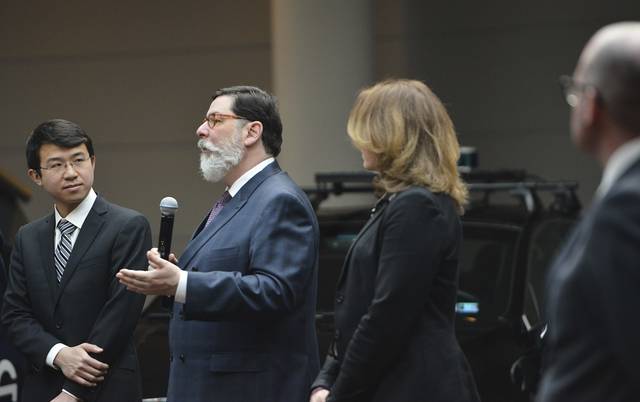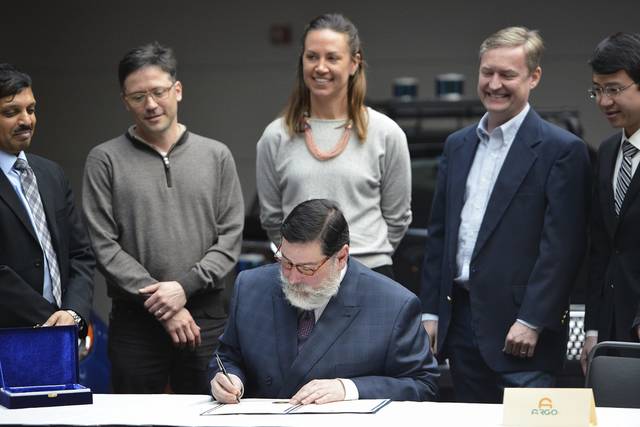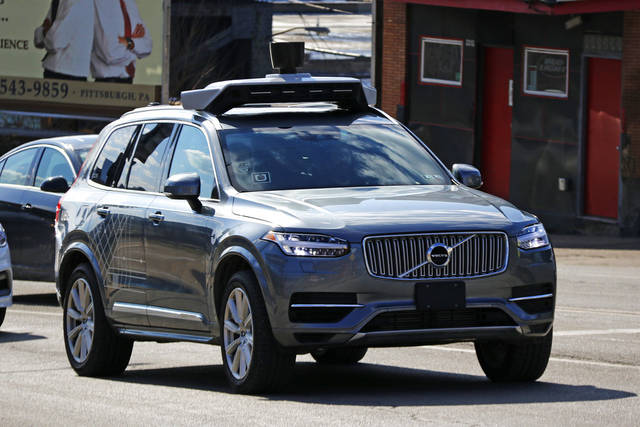Pittsburgh Mayor Bill Peduto issued an executive order Monday outlining guidelines companies must follow for the safe testing of self-driving cars in the city.
Known as the “Pittsburgh Principles,” the order is the first of its kind issued by any city worldwide and will serve as a foundation for the evolving self-driving vehicle industry in Pittsburgh, Peduto said.
The mayor noted that Pittsburgh once led the world in heavy manufacturing but the steel industry poisoned the region’s air and water and created wide disparity between workers and company owners.
The guidelines for testing in Pittsburgh are designed to avoid problems from the onset that industry might cause, Peduto said.
“The group here put together something that doesn’t exist,” he said. “There wasn’t another city that we could just say, ‘Let’s adopt what Portland, Oregon, has done.’ The question is how do we build an industry for all. What we want to be able to do is work hand-in-hand with the autonomous automobile industry to create a leading city once again.”
Five organizations developing self-driving systems in the city include Aptiv, Argo AI, Aurora Innovation, Carnegie-Mellon and Uber. Representatives of each company said they are committed to following the mayor’s executive order and guidelines.
“We want to make sure self-driving technology works for everybody,” said Eric Meyhofer, who heads Uber’s Advanced Technology Group.
The guidelines carry no penalty for potential violators, according to Karina Ricks, who heads Pittsburgh’s Department of Mobility and Infrastructure. She said the city would rely on Carnegie Mellon University to keep an eye on developments and let the city know if anything is amiss.
“We believe that we will get partnership from the industry,” Ricks said. “Learning on our public streets is something that helps both sides in this. It doesn’t (include) any penalties at this point. We didn’t want to start on that foot.”
Under the guidelines, companies must submit information about themselves, their fleets and employees, when and where they are testing and under what weather conditions. They must report how many miles they test on city streets each year, submit safety plans to the city and define how the public might benefit from testing.
Companies are required to submit a report to Ricks’ department every six months and the department must issue a public report on the industry each year.
“Right now, this just talks about, when you test in our city, how are we going to work together in that testing?” Ricks said. “How are we going to have transparency between us? How are we going to have radio communications? How are we going to respond in the case of any kinds of safety operations that go on?”
A full copy of the order can be found here.

















